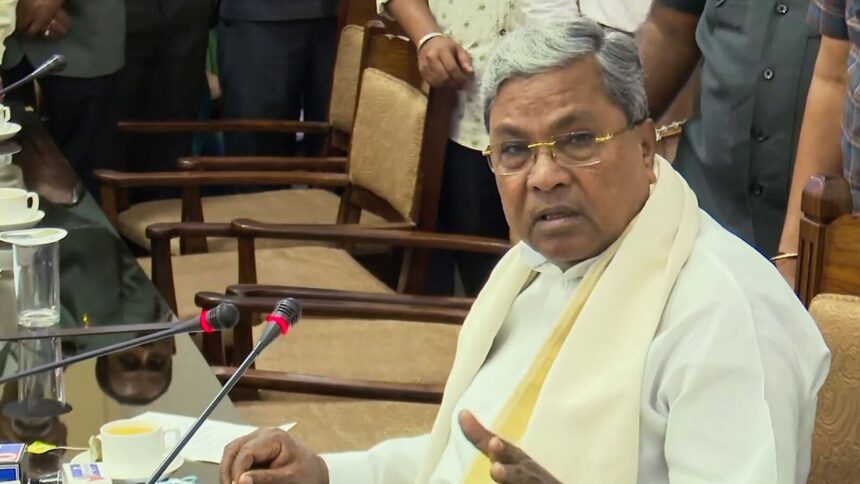The Dynamics of Speculative Journalism: Insights from Karnataka Chief Minister Siddaramaiah
In recent weeks, Karnataka Chief Minister Siddaramaiah has found himself at the center of speculation regarding a potential leadership change in the state’s ruling coalition. Addressing this issue head-on, Siddaramaiah expressed his concerns about the trend of speculative journalism that dominates current media narratives. During his speech at the Press Club of Bangalore (PCB) Award-2024, he emphasized the importance of responsible reporting, urging journalists to prioritize truth over assumptions.
The Context of Speculation
The backdrop to Siddaramaiah’s remarks is the ongoing discussion among political analysts and media about the future of Karnataka’s political leadership. Reports suggesting that Deputy Chief Minister DK Shivakumar might soon replace Siddaramaiah have circulated widely, despite the Chief Minister’s reaffirmation that “my chair is not vacant.” The rumors appear to stem from informal gatherings and dinner meetings among ministers that have often been misconstrued as discussions about leadership changes.
Siddaramaiah criticized the media for taking these gatherings out of context, stating, “If people gather for dinner, it becomes news based on speculation — though we would have discussed something else.” This statement reflects a growing irritation among politicians who feel that media narratives oversimplify complex political situations, often leading to misinformation and public anxiety.
The Dangers of Speculative Journalism
The Chief Minister did not shy away from addressing what he perceives as the dangers of speculative journalism, which he described as a “dangerous trend” during his address. He called on journalists to verify facts rather than propagate unfounded rumors that could potentially alter public perception and trust in media. “At least your reports should be closer to the truth,” he urged.
Siddaramaiah’s argument is not without merit. In a world where social media amplifies every claim and rumor, the consequences of irresponsible reporting can be significant. Journalists often operate under immense pressure to produce sensational stories that attract public attention, which occasionally leads to a lack of due diligence in fact-checking.
Journalism as a Sacred Profession
Furthermore, Siddaramaiah called for a more conscientious approach to journalism. He described the profession as sacred and highlighted its role as the “fourth pillar of democracy.” Journalists hold a pivotal responsibility in shaping public discourse and maintaining a check on the other branches of government. He asserted that instead of indulging in superstition and unfounded claims, journalists should aim to be the voice of the people, reflecting their concerns and aspirations more accurately.
In his address, Siddaramaiah also recalled a 2016 incident during his first term as Chief Minister. He recounted how a discussion among astrologers about his political future gained traction in the media, leading to predictions that he would resign after presenting the state budget. This example further illustrates how sensational reporting can detract from substantive political discourse and serve to undermine the credibility of journalism.
The Call for Healthy Criticism
While criticizing speculative journalism, Siddaramaiah did stress the importance of healthy criticism, which he believes is crucial for improvement and accountability. “Healthy criticism helps people to improve and take corrective measures,” he stated, advocating for a balanced approach that distinguishes between constructive criticism and malicious speculation.
Conclusion: Moving Toward Responsible Journalism
The dialogue initiated by Siddaramaiah underscores an essential conversation about the responsibility of the media in today’s fast-paced information age. As consumers of news, it is imperative for both journalists and the public to recognize the difference between fact and speculation. The call for responsible journalism is more relevant than ever, particularly in politically charged environments, where narratives can shift dramatically based on the media’s portrayal.
Going forward, the onus is on journalists to exercise ethical judgment, prioritizing accuracy and context over sensationalism. By doing so, they can uphold the integrity of their profession and maintain the public’s trust, crucial for a flourishing democracy. As Siddaramaiah aptly put it, “People have lots of faith in you, which you should retain.”










